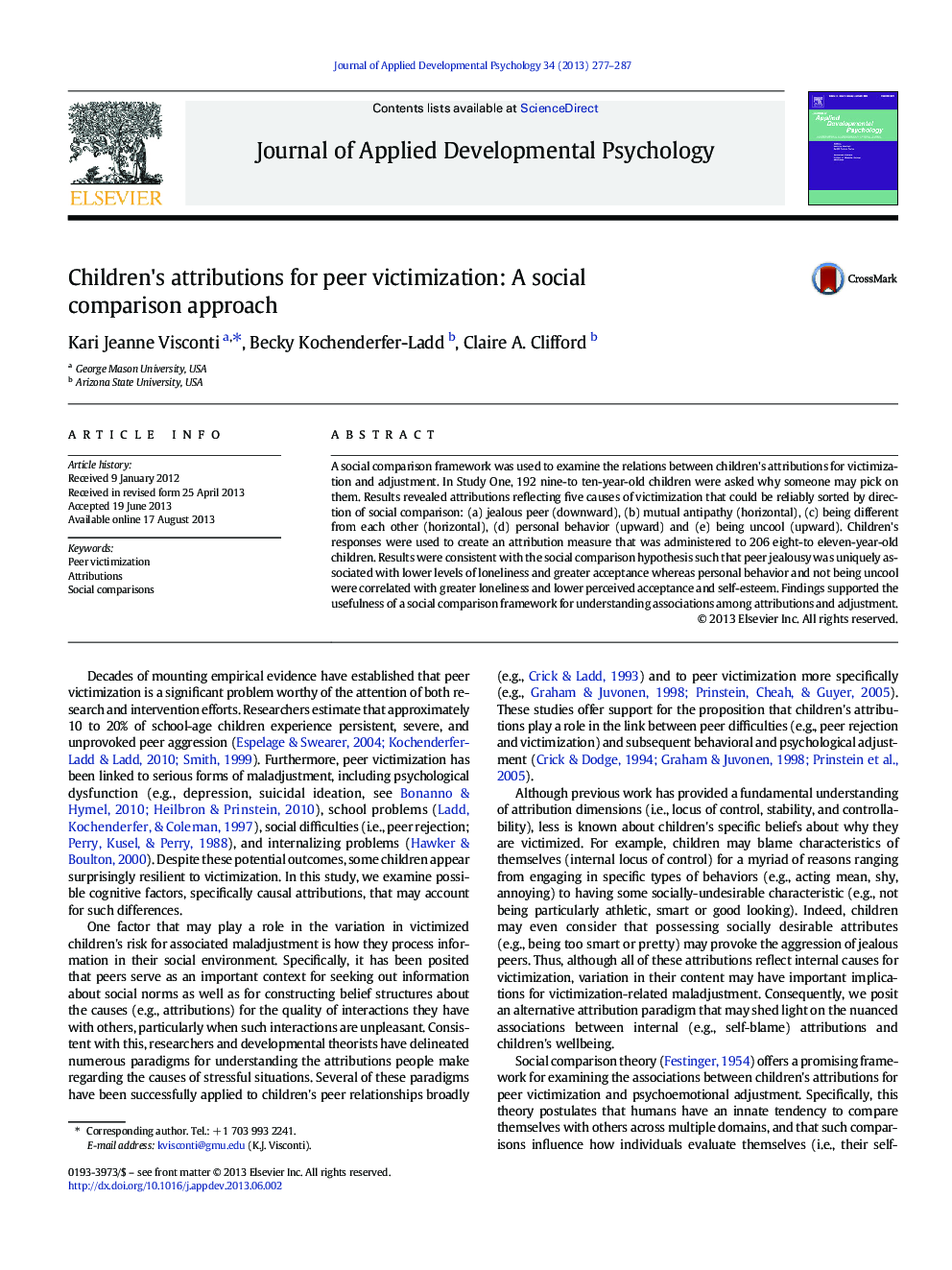| کد مقاله | کد نشریه | سال انتشار | مقاله انگلیسی | نسخه تمام متن |
|---|---|---|---|---|
| 359814 | 620286 | 2013 | 11 صفحه PDF | دانلود رایگان |

• A new measure of children's attributions for peer victimization was developed.
• Social comparison theory is used to predict associations among study variables.
• Downward comparison attributions predicted less loneliness and greater acceptance.
• Upward comparison attributions predicted greater maladjustment.
A social comparison framework was used to examine the relations between children's attributions for victimization and adjustment. In Study One, 192 nine-to ten-year-old children were asked why someone may pick on them. Results revealed attributions reflecting five causes of victimization that could be reliably sorted by direction of social comparison: (a) jealous peer (downward), (b) mutual antipathy (horizontal), (c) being different from each other (horizontal), (d) personal behavior (upward) and (e) being uncool (upward). Children's responses were used to create an attribution measure that was administered to 206 eight-to eleven-year-old children. Results were consistent with the social comparison hypothesis such that peer jealousy was uniquely associated with lower levels of loneliness and greater acceptance whereas personal behavior and not being uncool were correlated with greater loneliness and lower perceived acceptance and self-esteem. Findings supported the usefulness of a social comparison framework for understanding associations among attributions and adjustment.
Journal: Journal of Applied Developmental Psychology - Volume 34, Issue 6, November–December 2013, Pages 277–287